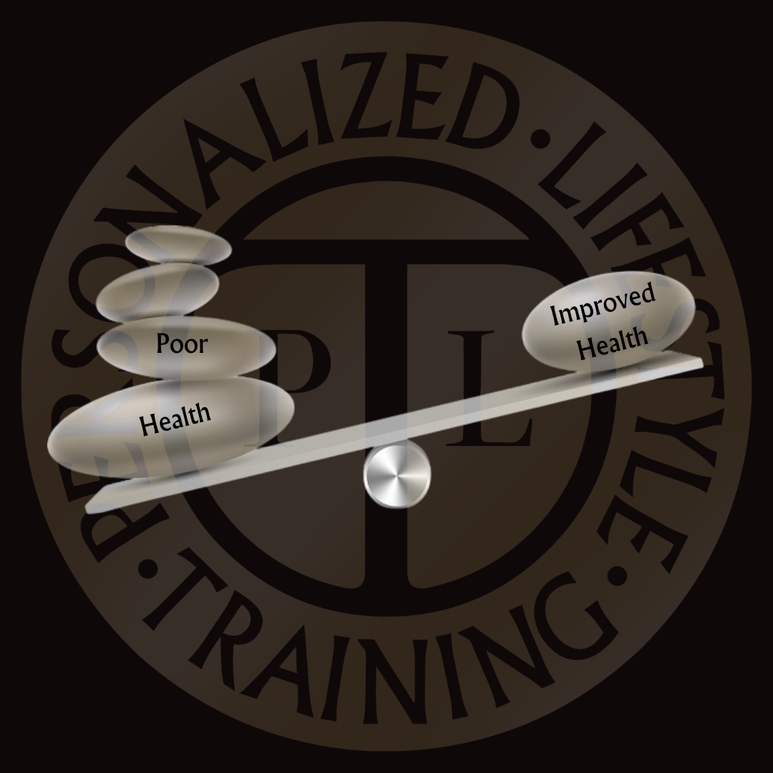|
A healthy calorie deficit is crucial for sustainable weight loss, while an excessively restrictive calorie deficit can have negative effects on your health. Here's a breakdown of the differences:
HEALTHY CALORIE DEFICIT:
TOO RESTRICTIVE CALORIE DEFICIT:
SIGNS OF TOO RESTRICTIVE CALORIE INTAKE:
In the world of health and wellness, the road to change is often filled with real challenges. Mandy Anderson's testimonial reflects the genuine impact of PLT's approach on people's lives. Her heartfelt words and raw insight speaks to the gradual and healthy approach that defines PLT. "I started working with my coach, Kasha, a little over a year ago. Joining PLT was a last-ditch effort—a final attempt at getting my mind and body back to a healthier state after a challenging 5 years." Mandy's initial feelings resonate with the common struggles many of us face when starting a wellness journey. The decision to take charge of one's health often comes from a place of deep need, and for Mandy, it marked a significant shift after years of feeling overwhelmed and overworked. "I'm happy not just because I've shed pounds and inches, but because I genuinely feel lighter. Keeping up with daily steps and a clear eating plan has given me the strength and time to focus on my heart and mind." Mandy's recognition of a lighter spirit emphasizes how PLT's approach goes beyond just physical changes. Incorporating daily steps and a clear eating plan aims to empower individuals holistically, fostering a positive shift in mindset and well-being. "Despite a 5-week pause due to surgery, the loss of my father, and losing my job the same month, my progress persisted. Staying on track and having Kasha in my corner has given me my life back, even with those setbacks. Handling rough spots in life wasn't my forte before." Mandy's resilience in the face of setbacks showcases how the habits and mindset cultivated through PLT's program endure challenging times. The support system, with Kasha as a guiding force, becomes a foundation for overcoming life's hurdles. "Shedding 25 pounds (30 since my heaviest weight in 2022) and letting go of self-loathing was possible thanks to this program and community. I've got my life back and no longer wake up wishing I felt differently about myself." Mandy's tangible results highlight the effectiveness of our gradual approach. Shedding both physical and emotional weight emphasizes the real and lasting impact of fostering healthy habits within a supportive community. "It hasn’t been easy, and life has thrown some serious curveballs. But consistency is key, and my belief in myself makes me proud. Thank you, PLT." Mandy's acknowledgment of the challenges emphasizes the importance of consistency and self-belief. At PLT, we understand that real change takes time, and Mandy's pride in herself reflects the power of cultivating positive habits and a resilient mindset. Mandy’s journey stands as a genuine example of what can be achieved through a gradual and holistic approach to health. At PLT, our commitment is to guide each client authentically, providing the tools, support, and community needed to reclaim their lives. Mandy, thank you for sharing your real story, and to everyone on their own health journey, remember, it's about consistency, self-belief, and the commitment to a healthier, happier long life.Some of the most common questions people ask when considering a PLT Nutrition Coaching Plan are:
Q: Will I have to spend hours in the kitchen cooking elaborate meals from complicated recipes? Q: We have a large family and so budget is important when grocery shopping, do I need to buy all organic, fresh produce etc.? Q: I don’t like (or know how to) cook, will you help me with some simple ideas? At PLT, we encourage our clients to eat the foods they love AND to gradually improved the quality of their food choices. We talk about SIMPLE FOOD often, heck if you search #simplefood in the PLT Community, you will be inundated with meal/recipe ideas that will definitely NOT stress you out in the kitchen. A very basic recommendation for all:
Whilst fresh is awesome and you should definitely include some fresh veggies weekly if you can, many people find that they are constantly throwing away produce that has gone bad - we all dislike food waste and wasting our hard earned cash! Don’t turn your nose up at frozen please. Frozen vegetables offer several benefits that make them a convenient and nutritious option. Whether you are cooking for 1 or a family of 15, some important things to consider about the wall of veg in the frozen food department: Nutrient Retention: Frozen vegetables are often frozen shortly after harvesting, locking in their nutritional content. This process helps preserve essential vitamins, minerals, and antioxidants, ensuring that they remain available for consumption. Long Shelf Life: Frozen vegetables have a longer shelf life compared to fresh produce. This extended shelf life allows for convenient storage, reducing the risk of food waste. You can keep a variety of frozen vegetables on hand, making it easier to incorporate them into your meals regularly. Convenience: Frozen vegetables are incredibly convenient. They come pre-washed, pre-cut, and ready to use, saving you time on preparation. This convenience can be especially helpful for busy individuals or those with hectic schedules. Year-Round Availability: Frozen vegetables are available year-round, regardless of seasonal variations. This ensures a consistent and diverse supply of vegetables, allowing you to maintain a well-balanced diet throughout the year. Cost-Effective: Frozen vegetables are often more cost-effective than fresh produce, making them a budget-friendly option for those looking to maximize nutritional value without breaking the bank. Buying in bulk can further enhance cost savings. Reduced Food Waste: Frozen vegetables help reduce food waste since you can use only the amount you need and store the rest for later. This contrasts with fresh produce, which may have a shorter shelf life and be more susceptible to spoilage. Texture and Taste: The freezing process helps maintain the texture and taste of many vegetables. While some may soften slightly upon cooking, the overall quality is often comparable to fresh alternatives. Versatility: Frozen vegetables are versatile and can be easily incorporated into a variety of dishes. Whether you're adding them to yummy bowls, stir-fries, egg dishes, or side dishes, frozen vegetables provide flexibility in meal preparation. Availability of Mixes and Blends: Many frozen vegetable mixes and blends are available, combining different vegetables for added variety and convenience. These mixes can be tailored to specific recipes or preferences. Nutrient Density: Despite common misconceptions, frozen vegetables can be as nutrient-dense as, or even more so than, fresh vegetables that have been stored for an extended period. The quick freezing process helps preserve the vegetables at their peak nutritional state. Simple is best. Simple needn't be boring. Simple can be very budget friendly. |
AuthorI'm Paul Leonard, CEO & founder of PLT Nutrition. Categories
All
|
|
Current PLT Members
|
Quick Links
|
Connect With Us
|





 RSS Feed
RSS Feed
